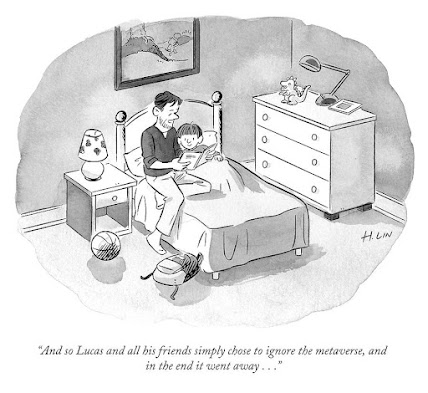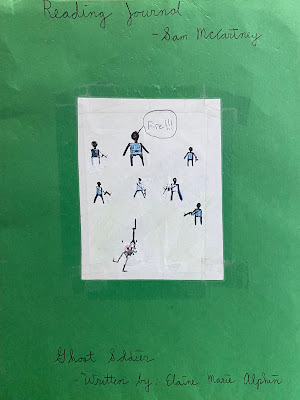"A pioneer should have imagination,
should be able to enjoy the idea of things
more than the things themselves."
(O Pioneers! 28)
In order of publication:
O Pioneers! (1913)
The Song of the Lark (1915)
My Ántonia (1918)
I love the way these book covers capture Willa Cather's sweeping vision of frontier life. Cather looks deep into both the interior psyche and the exterior landscape inhabited by the settlers of the North American Great Plains. The pioneers may be surrounded by stunning natural vistas, yet their hearts are often troubled by conflict and anxiety.
For further reading ~ click here ~
Most are brief, as novels go,
so you needn't be daunted by the project
of assigning them all to yourself as a
summer reading challenge.
Back in 1977, I was required to read
My Antonia, which I loved and have re-read a few times over the years, especially the beautiful Christmas chapters, and the segments that remind me so much of my own great - grandmother's descriptions of
homesteading in Nebraska.
I don't know why it took me so long to read more of Willa Cather's elegant, evocative historical fiction. However, I knew it was time when, within days of each other, one friend (Antoinette) recommended
Death Comes for the Archbishop (1927) and another (Claude) recommended
One of Ours (1922). In turn, I suggested these titles to my friend Megan, also
an avid reader.
When I asked Megan if she had read
My Antonia in high school or college American Lit, she wrote back: "Yes I literally had to choose my own book to do a book report on in high school, and I chose
My Antonia. I've never re-read it. I'm usually a one and done reader, movie watcher, husbands -- haha! Good for you to go deep into an author. Then you really know their voice, right?" Megan always gets it!
In the same way that
My Antonia coincides with the experience of my ancestors in Nebraska, numerous details in
One of Ours echo the letters that my grandfather and his brother sent home from France during World War I.
A month before he died,
my Great Uncle Sam wrote to his mother:
"I surely hope you are not worrying about me and trust you are not because I am faring fine so be easy as possible. I figure this is a cause worthy of an easy mind, although the outcome might be unfortunate for a boy, it is well worth whatever loss he meets, is simply why I can set steady in the boat. I want you to see it is so, not for the good old US alone but for humanity's sake in general, and I know you do of course and . . . see where we are fighting for Right and it's not near as much trouble for you. For me, I am not bothered a bit -- can't be bothered haha!"
Informative background sources reveal timely connections between the current war in Ukraine and Cather's portrayal of World War I. This particular analysis is uncannily consistent with Sam's letter home and with recent testimonials I have read from determined young Ukrainian soldiers:
"Whether or not one agrees with those who create wars — the politicians — men and women do go to war, fight, and die out of a sense of patriotism, honor, and duty, because of some sense of a higher truth or greater cause. Because war is horrible, some do become disillusioned with the experience; some are traumatized forever. Some, like G. P. Cather [Willa Cather's cousin] and Claude Wheeler [Cather's main character in One of Ours], die before their illusions or ideals are destroyed.
" . . . a statement made by one of Cather’s most critical contemporaries in the same year she began work on “Claude” [to be retitled "One of Ours"]: 'how much better to die in all the happy period of undisillusioned youth, to go out in a blaze of light, than to have your body worn out and old and illusions shattered' (Baker 52). That was young Ernest Hemingway."
from " 'Pershing's Crusaders':
G.P. Cather, Claude Wheeler, and the AEF Soldier in France"
by Richard C. Harris
An unexpected connection:
"In those days Claude had a sharp physical fear of death. A funeral, the sight of a neighbour lying rigid in his black coffin, overwhelmed him with terror. He used to lie awake in the dark, plotting against death, trying to devise some plan of escaping it, angrily wishing he had never been born. Was there no way out of the world but this? When he thought of the millions of lonely creatures rotting away under ground. life seemed nothing but a trap that caught people for one horrible end. There had never been a man so strong or so good that he had escaped. And yet he sometimes felt sure that he, Claude Wheeler, would escape; that he would actually invent some clever shift to save himself from dissolution. When he found it, he would tell nobody; he would be crafty and secret. Putrefaction, decay . . . . He could not give his pleasant, warm body over to that filthiness!" (p 27)
from One of Ours
Chapter 1: "On Lovely Creek," Part VII
and from an unrelated work,
which I happened to be reading
coincidentally the same week
that I pulled out all the Cather novels:
"Men especially dislike the thought that after each one ceases to exist, others will continue in the usual way, soon filling the empty space. Along this line of thought a man is pushed toward the conclusion that no matter how precious his life is to him, no matter how he strives, accomplishes, and hoards to validate that life and protect it against every assault, still in the cosmic scale it weighs no heavier than the life of a hyena or a scorpion." (p 28)
from The Crone: Woman of Age, Wisdom, and Power
by Barbara G. Walker
In conclusion,
a few favorite highlights from
Death Comes for the Archbishop:
1. The Long Nights of Lent
2. Hue, Value, Intensity
3. Like a Coloured Map
4. Missing Ancestors
5. Softly, softly
The Professor's House:
1. Going to the Lake
2. Taking Death Seriously
3. In Art As It Is In Heaven
My Antonia:
Thus Far Our Experience
And numerous other references on
The Quotidian Kit















